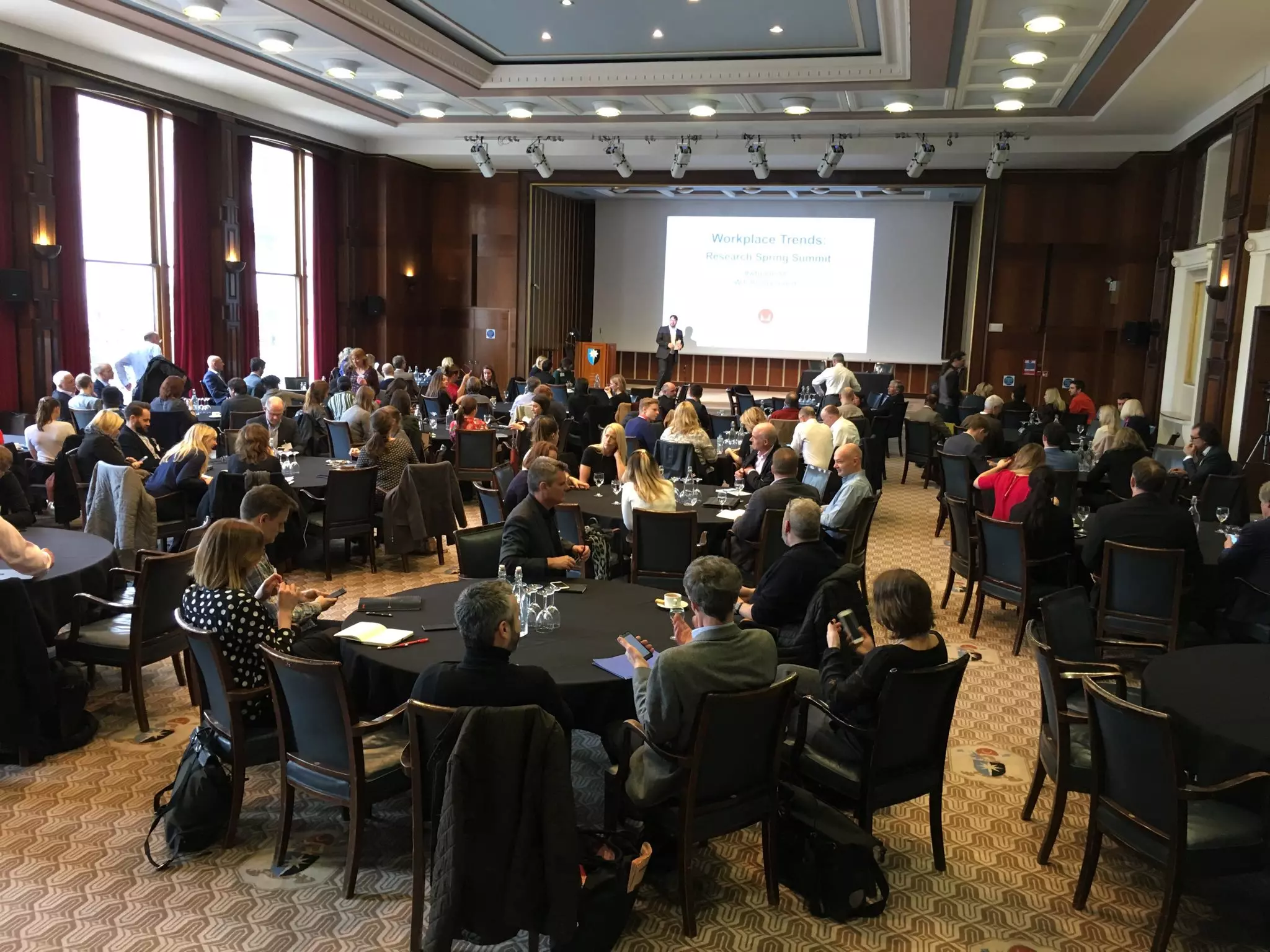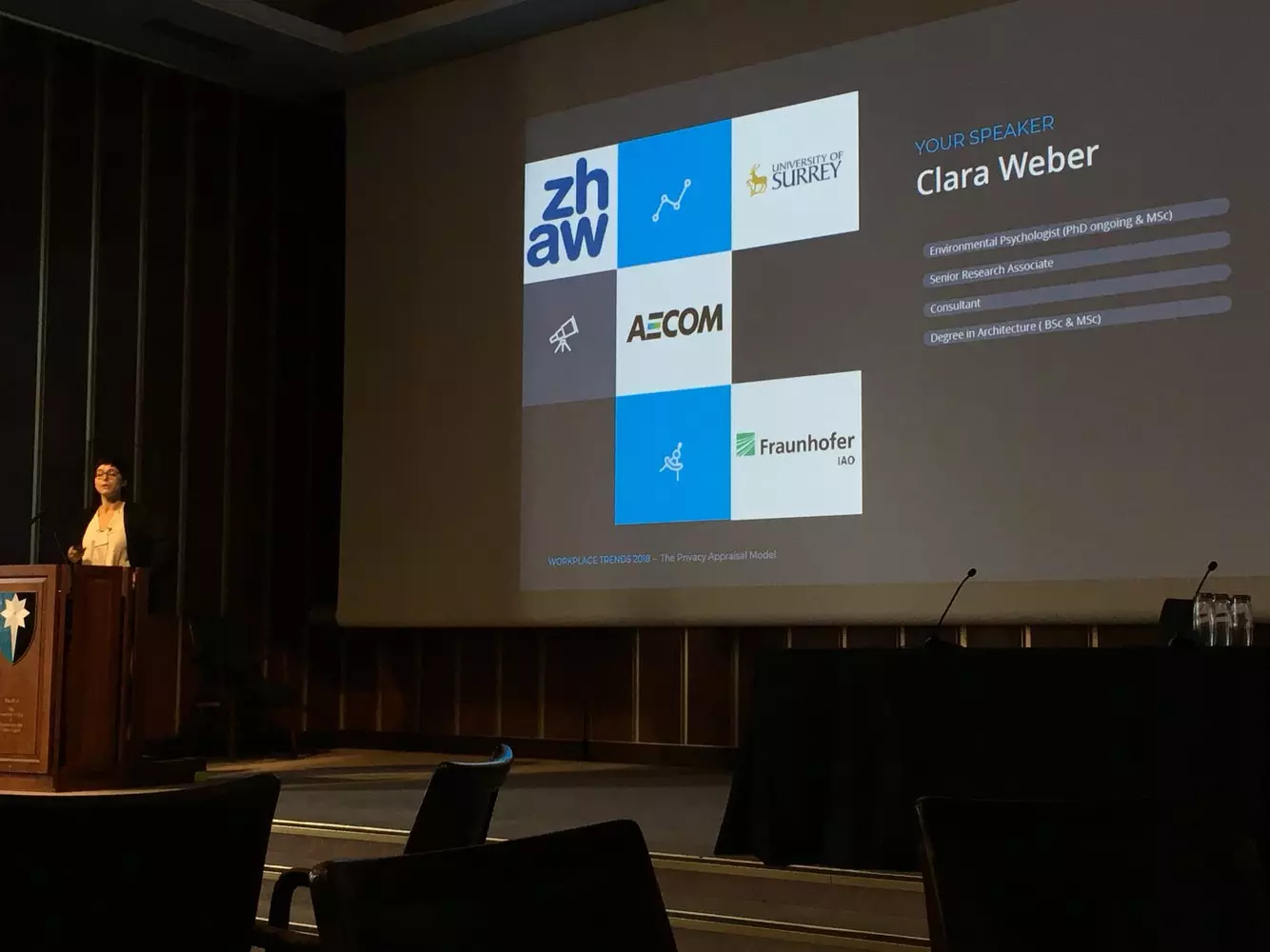Eingeladener Vortrag von Clara Weber auf der Workplace Trends Conference in London
Clara Weber berichtet an der renommierten Workplace Trends Conference in London Forschungsaktivitäten des Workplace Management Teams des Instituts für Facility Management der ZHAW. Der Titel ihrer Präsentation war “Why Privacy Impairment in Offices Leads to Stress And Fatigue & What We Can Do About It”.
Stellvertretend für die Forschungsaktivitäten des Workplace Management Teams des Instituts für Facility Management (IFM) der ZHAW LSFM stellte Clara Weber ihre neuesten Forschungserkenntnisse bei der renommierten Workplace Trends Conference in London vor.
Die Workplace Trends Conference ist ein in der Industrie etablierter Kongress, initiiert von Dr. Nigel Oseland und lädt jährlich zu Vorträgen von Workplace Experten aus der Forschung und der Industrie nach London ein.
In diesem Format werden Workplace Trends der nächsten 10-20 Jahre erörtert, die ein grosses Spektrum an Themen abdecken. Dazu zählen Themen wie Wohlbefinden, Produktivität, Kreativität, Happiness, Biomimicry, Psychologie, Biophilia, Agile & Activity based working..
Dieses Jahr waren Referenten aus Holland, Grossbritannien, USA und, mit Clara Weber vom IFM ZHAW LSFM, aus der Schweiz geladen. Dazu zählten Wouter Oosting (CBRE Amsterdam lead), Nicola Gillen (AECOM Global lead), Dr. Sally Augustin (Researcher & Consultant), Tim Oldman (Leesman CEO) und William Fawcett (Cambridge Architectural Research Ltd.).
Clara stellte in ihrem Vortrag Forschungsergebnisse aus ihrer Promotion vor. Der Titel des Vortrags war “The Privacy Appraisal Model. Why Privacy Impairment in Offices Leads to Stress And Fatigue & What We Can Do About It”. Sie erörterte, warum Privacy Impairment in Open Plan Offices zu erhöhtem Stressempfinden und emotionaler sowie mentaler Erschöpfung führen kann und welche psychologische Theorie sich hierzu nachweislich zur Erklärung heranziehen lässt. Sie erklärte, wie die untersuchten Merkmale des Büro-Designs und Elemente der Unternehmensultur Privacy Impairment verhindern oder dessen Konsequenzen abschwächen können.
The Privacy Appraisal Model for Open Plan Offices, Clara Weber (youtube)
Abstract:
Privacy impairment is a frequently reported issue in open office environments, yet the psychological process behind this experience and its consequences remain unclear. To investigate and to address shortcomings of previous research, this study focuses on the incongruence between workers’ desired and achieved levels of privacy and on the appraisal of its stressful nature. Regression analyses and Structural Equation Modelling were performed on two data sets of 238 and 109 survey responses from two UK office worker samples. Results supported the hypotheses that unmet privacy needs significantly predict stress, fatigue and dissatisfaction at work (work demand and mood were controlled). Further, the relationship between unmet privacy needs and stress, fatigue and dissatisfaction at work were mediated by the assessment of coping resources. This means that the perception of privacy related stress largely depends on someone’s perceived ability to cope with the privacy related stressor. Three variables in the work environment were found to influence both, privacy regulation and privacy related coping: (1) variety of office settings, (2) autonomous workplace culture, and (3) behavioural protocols on how office spaces should be used. Results could inform physical workplace design as well as cultural interventions in organisations.

